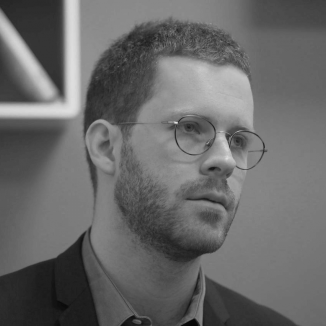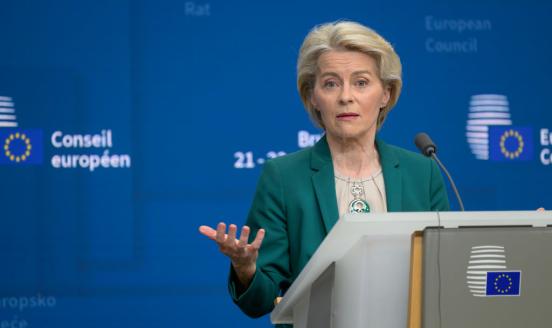How comprehensive is the EU political realignment?
Has the left-right divide become obsolete in EU politics?
Speakers
David Amiel
Former Policy Adviser to President Emmanuel Macron,
Silke Wettach
EU Correspondent, WirtschaftsWoche,
Otilia Dhand
Senior Vice President, Teneo,
video & audio recordings
summary
Bruegel was excited to host this event where speakers and experts from a variety of fields discussed the evolving party alignments in the European Union. The results of the May 2019 European Parliament election have highlighted the rise of liberal-centrist, green and nativist parties, and a relative decline of the traditionally dominant centre-left and centre-right, against a backdrop of political mobilisation and higher turnout. As the political landscape of Europe continues to shift, its important to understand the ever-changing context in which EU politics occurs.
David Amiel, former policy adviser to President Emmanuel Macron, started the discussion with a presentation “Has the left-right divide become obsolete in EU politics?”. Amiel argued that the current collapse of traditional left-right parties has been happening before the crisis. The cause of this collapse is deep and structural. Traditional issues dividing the left/right are less relevant and intense. Right-wing parties do not intend to dismantle the welfare state and left parties accepted a globalized market economy. Right-wing parties adopted much of the individual rights issues such as gay marriage and women’s rights. Left-wing parties could no longer run on these issues and the issues that do fall into this dimension have become more niche. Both parties ignored new issues such as territorial inequalities, labour market polarization, multiculturalism, the environmental crisis, etc. Amiel also highlighted other causes such as excessive professionalization and technocratization of parties, within-party divisions, and naivete towards the globalization process. Amiel pointed out that a common creed that populist parties got right was “take back control”.
Amiel defined populism more as an attitude and less as an ideology, and as evidence points to studies from France that showed that psychological characteristics such as optimism was a good predictor of whether someone in the previous election voted for Macron or Le Pen -- people being more optimistic being more likely to vote for Macron. To further this point, Amiel defined populism as an attitude and comprised of three key parts: An “us vs. them” mentality (the “them” can be immigrants, the elite, or some other group), violent attitude against the public institutions that enforce pluralism and democratic life, and questioning the establishment. Amiel stated that populism addressed the issues that main stream parties failed to address. Amiel sees individual rights like gay marriage and gender equality are very different from the immigration issue. In France the populist right does not make the individual rights a central issue but does make immigration a central issue. Amiel argued that for a strong welfare state and civic involvement individuals must have a sense of a commonality and believes that identity politics is not conducive to this goal of commonality. Identity politics will not lead the left-wing parties to political success. Economic issues are still the key.
Amiel’s advice to combat populism is to understand the root causes of populism, to not indulge in denial – do not pretend that populism is not a powerful force, acknowledge the legitimate concerns of populists, do not engage in moral denunciation, make a review of failures of the left and right parties, and provide alternative answers.
Silke Wettach, EU correspondent for WirtschaftsWoche, continued the discussion. Wettach asserted that the claim that the left and the right are dead is a very French perspective, and in Germany it is viewed that the traditional forces are going down. Wettach argued the question of do we want a strong state and how much redistribution do we want will not go away, and they have to be addressed by parties. Related to this, Wettech criticized the lack of attention Brussels pays to the question of redistribution. In terms of the rise of populism, Wettach pointed to fear of personal decline in income and insecurity as key components. On the rise of the green parties, Wettach argues their success was in part due to their tactic of a fairly empty canvass that people could project onto that canvass. Wettach rejected the idea that there is a peer effect where people see traditional parties eroding in the countries next door and this contributes to the erosion of traditional parties locally. On how to combat populism, Wettach advised that education, taking people’s fears seriously, and engagement are crucial.
Otilia Dhand, senior vice president of Teneo, provider her thoughts next. Dhand provided three reasons for why right-wing populism grew in Central and Eastern Europe (CEE). The first reason was that many of the CEE countries joined the EU in 2004 and 2007, and when the crisis hit in 2008, they were negatively affected. The second reason was the austerity measures mandated by the EU. This act provided a target for local political parties to blame. The third reason is the cultural crisis caused by the immigration crisis. Dhand stated that CEE countries are very closed to immigrants and are often fairly racist. These three factors created compounded economic, social, and cultural insecurities that created an environment where simple solutions and strong leaders would be appealing. Dhand does think that in CEE countries peak populism has passed, and the sense of European liberal values being threatened is now forcing voters that were inactive for several years to return and vote. In order to stem the tide of populism Dhand suggests that the European Commission does not have a role to play, and at the country level give people power to understand what they actually wield in terms of active and passive voting.
Notes by Akira Soto







